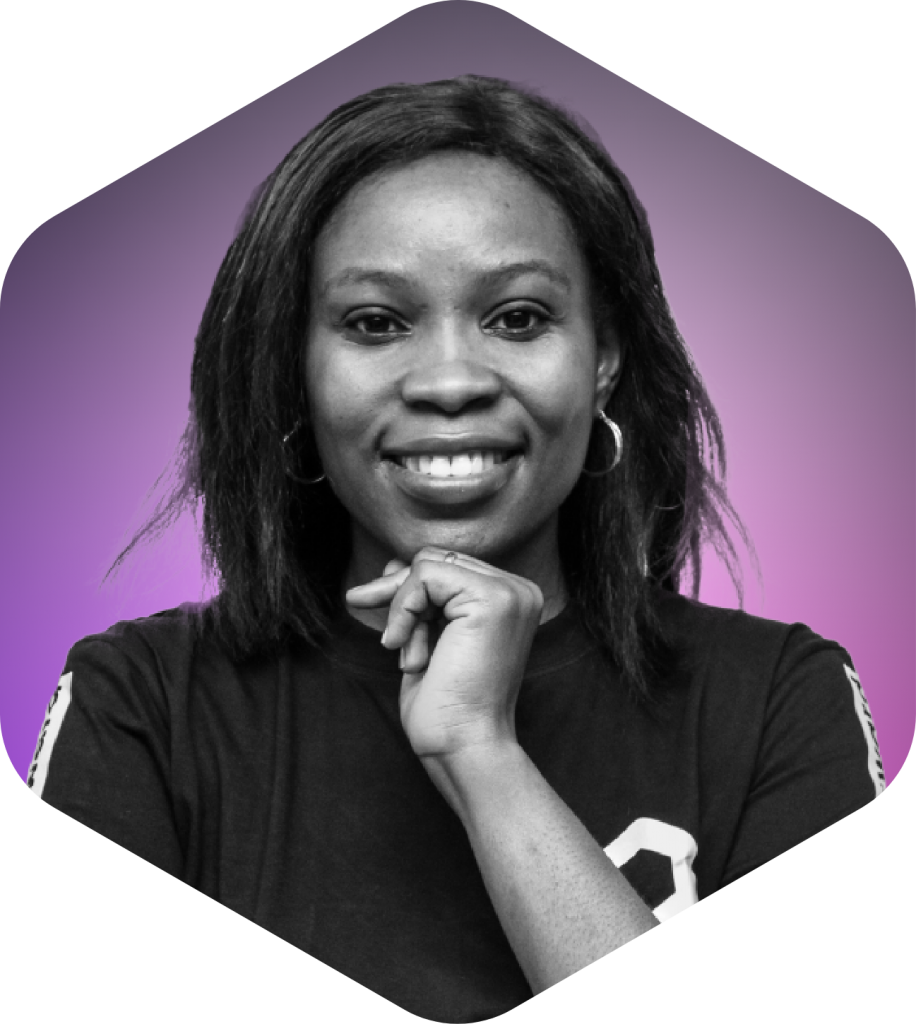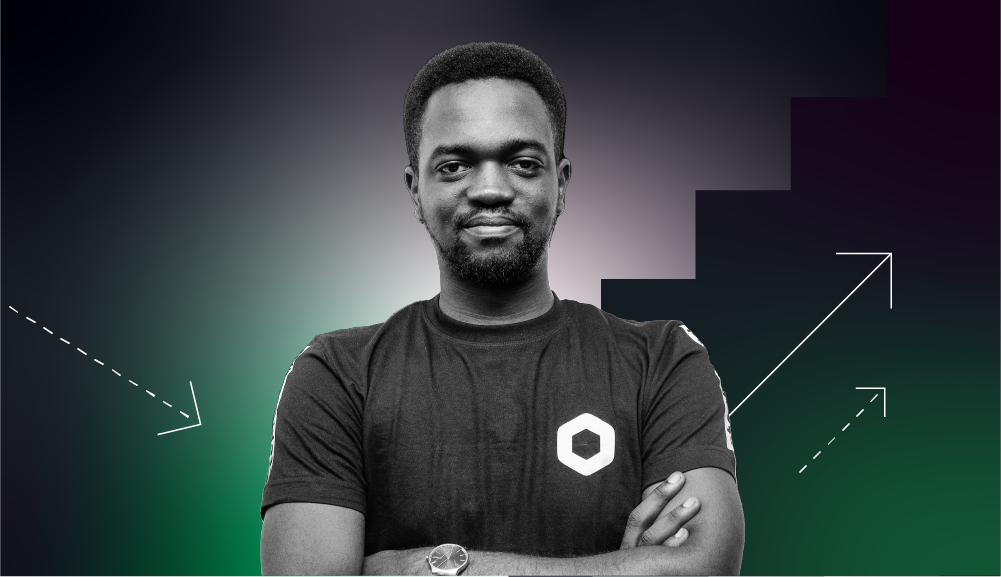I have always been fascinated about being a matchmaker for employers and talents in Nigeria. The treat for me is knowing that my contributions in sealing this mutual relationship are essential to the progress of both parties in the short and long run. On one hand, it is about finding the right plug for a business need that morphs into a community solution, and on the other hand, it’s about building the future of an individual and impacting their whole world positively.
After being active in the field for a number of years, I settled into the rhythm of the nuances involved with the Nigeria recruitment circle, until 2019, when cross-global talent matches started becoming more apparent. Talents in the Tech industry more particularly were sought by companies in the US and the EU, and each hire made became a mutual testimonial of learnings and benefits that is evidently impacting the world globally.
As a Recruiter caught in this mix, I have also been privileged to engineer some of these global alliances for Tech talents and have noted distinct peculiarities between the expectations of Nigerian employers and their counterparts in the EU that in-turn impacts their hiring outcomes.
I recently had the opportunity of sharing a few of those insights with an audience at the International Organization for Migration (IOM) virtual Talent Match scoping mission in February. The IOM MATCH project seeks to address labour market shortages in 4 EU Member States by enabling talents from Nigeria and Senegal to work for companies in Belgium, Italy, Luxembourg or the Netherlands where specific sectoral labour shortages have been identified – primarily in the ICT, technology and digitalization sectors. The scheme seeks to upscale young migrants’ skills and increase their employability, while addressing EU company needs.
I featured as a panellist at the event with the aim of providing insights on considerations and advice for EU companies when recruiting ICT talent from Nigeria.
Tech Skill Expectations
Most Nigerian employers recruiting for Tech talents are often impressed with those who have what I would like to call the “Broad”-shaped skill profile. This typically describes Software Engineers who possess a variant stack of technologies both for back end and front end Software Development. Talents in this category are usually referred to as Full Stack Developers. They stand a higher chance of being hired by Nigerian companies and will be viewed as potential ‘Heads of Technology Departments’ with this advantage. The preference for the people with this skillset is prevalent amongst Nigerian Startups looking to maximize their limited resources while on their journey to building revolutionary products.
EU employers, on the other hand, prefer to hire Tech professionals who have the “I” shaped skill profile that shows specialization. They find candidates who have a proven track record of drilling down on one technology versus a broad stack significantly more appealing. Sadly, many Nigerian candidates are left flabbergasted when they learn that they were dropped from the recruitment process after showcasing their broad stack as a competitive advantage in interviews with European employers.
Definition of a Senior Developer
From the above comparisons, it’s then easy to deduce who a Senior Developer is for either of the parties. For the Nigerian employer, a Developer is considered to be senior if he has acquired under his/her belt, a broad stack of technologies for 5 years and above. Whereas for an EU employer, it is a Developer who is well grounded in a particular technology through the same length of time.
Speed on Hiring Decisions
Nigerian employers consider the speed of hire as a metric for recruiters. They understand how fluid the talent market is for Software Developers. Such that if they “snooze” they “lose”. In other words, they are conscious of the fact that Nigerian Tech talents move very fast within the market and often appreciate it when employers communicate their decision to hire or not, on the go.

Though EU employers are conscious of this, they still prefer to stall sometimes. They like to build a pool of possible hires, make comparisons on skills, revalidate suitability and then choose candidates. However, EU employers are quick to get back to candidates who do not fit the profile in the first stages of the selection process. The downside of this is, when eventually a decision is made, the chosen candidate waiting in the pool may have moved on with another company.
On the flip side, if you are a Nigerian talent going through a selection process with an EU company, and are now in the Tech interview stage, if things go silent for a couple of weeks, chances are that you are a potential candidate, so keep your fingers crossed.
Onboarding Duration
For the Nigerian employer, speed in hiring decisions also extends to the onboarding side of things. They want the position filled ‘like yesterday’ so that the new hire can hit the ground running as soon as possible. Hires are considered a success if when they come on board they can begin to ‘earn their keep ‘ from day one. It is uncommon to have experienced hires go through a learning period focused only on learning engineering systems and processes before they are assigned to client projects. The training system is mostly used to guide inexperienced hires or interns. Nigerian talents are used to this and are conditioned to jump into the work at hand on day one. If there are systems and processes to learn, they do it on the go while taking on live projects. That’s just the way it is.
The reality at EU companies is reversed. Employers are more deliberate about onboarding, dedicating an average of 12 weeks to train new hires and guide their understanding of the company’s internal engineering processes, regardless of their experience level, until they are a certified fit and are able to take on client projects. This deliberateness, though expensive, usually pays off in the long run.
Feedback Culture
For Nigerian employers and employees alike, feedback is always direct and immediate. They are often not laced with too many niceties so the message is not lost. This approach is deeply rooted in the Nigerian culture where parents rarely mince words or delay in giving feedback to their children especially when it is constructive. On the flip side, there have been accounts from Nigerian employees working with EU companies who shared that their leads/line managers often find it difficult to provide hard feedback on time. This leaves the Nigerian employee thinking that all is well until it is too late to amend their performance.
Admirable, EU companies are beginning to take all-round feedback more seriously not just with Nigerian hires but with the rest of their teams. TeleSoftas in particular has a practice of holding routine one-on-ones with individual employees to check on their mental health, impact of workload on overall performance, blockers to progress and anything else that may impact on the employee’s experience whilst in the Team. To make these check-ins a collective responsibility that is sustainable, this exercise is carried out by a unique set of Leads in the system, known as “Soft Team Leads”. They exist to provide support to the Technical Team Leads in the company in ensuring that there is a proper sync between work expectations and employee happiness.
I have not shared these differences in approach to recruitment to make one category of employer appear better, rather my intent to share these is to provide understanding and appreciation for each side and to open your mind to these varied expectations. I would also recommend that you consider the tips below to enjoy a more fruitful result.
Nigerian Talent:
- At Interviews:
– While you may consider your broad technology stack as plus to any employer, EU Employers need to perceive that you are grounded in the Language required for the role you are interviewing for. To communicate this conviction, your profile as a matter of priority must obviously reflect your knowledge and experience in the interest areas. If asked, feel free to talk about your knowledge in other technologies but be sure to highlight your preference for the technology you are being interviewed for.
– Also, in tackling a question on desired areas for improvement be sure to affirm your interest to dig deeper in learning more about that particular technology as well. It will be a huge turn off to say you have mastered all that there is to know and that you are looking to learn other technologies.-
- At Onboarding:
– Never assume what is being said. Always ask questions and reconfirm the instructions or answers you receive. This practice will help you and your new employer understand communication patterns that will help strengthen your relationship better.
– Be vulnerable. It is a learning phase on both ends so don’t be afraid to do “you”.
EU Employer:
- At Interviews:
– Be open to embrace a candidate with a broad stack of technologies as a plus and not a distraction. If the candidate excels at the technical interview stage, consider how valuable his/her “T-Shaped” skills can come into play in varied projects within your company.
– When a candidate successfully passes through your selection process, extend your offer soon after. Remember you are in a global market and as such you might not be the only one the candidate is talking to.
- At Onboarding:
– There is no such thing as over-communicating. Also as much as possible, never create a separate process for non-EU employees. You don’t want them getting the wrong message that they don’t exactly belong with everyone else.
Finally, whether you are a Nigerian or an EU employer looking to hire your next top Nigerian Tech talent, you will rarely go wrong if you secure the help of an experienced local recruiter to help you navigate through the maze.

This article was written by Jane Odonwodo – People Manager at TeleSoftas Nigeria. For more insights from Jane follow her on Linkedin.

